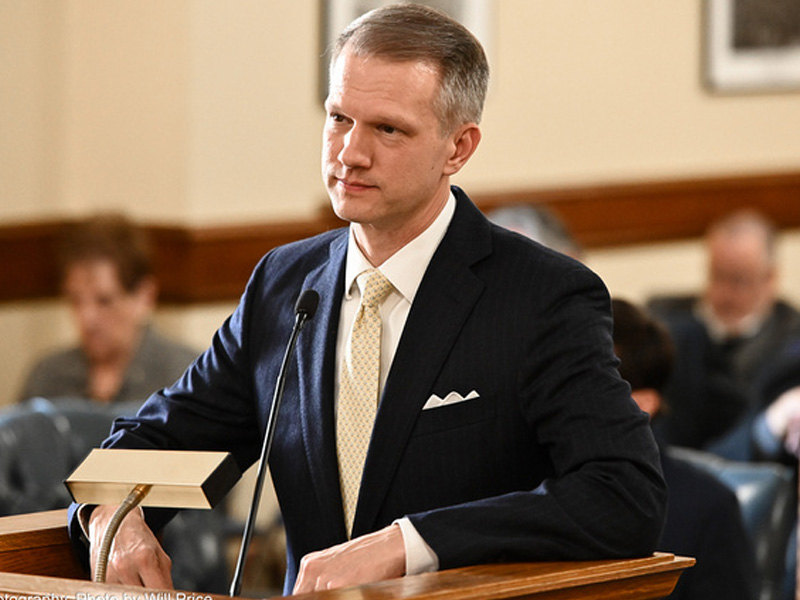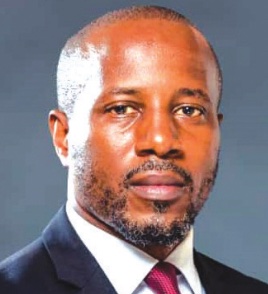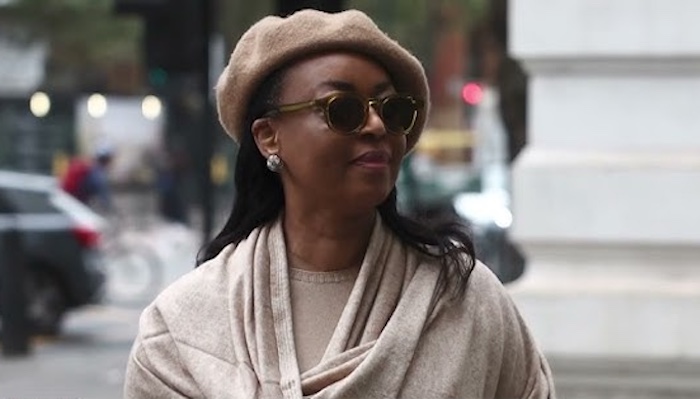
A United States Congressman, Riley Moore, on Wednesday, confirmed meeting with a federal government delegation led by the National Security Adviser (NSA), Nuhu Ribadu, as part of diplomatic efforts to douse the mounting tension between both nations, over alleged genocide against Christians in Nigeria.
Apart from the meeting with Moore, the Nigerian delegation, THISDAY gathered, has also been scheduled to meet with some White House officials, security chiefs and several other lawmakers on the matter.
A statement by Moore, seen by THISDAY, listed other members of the entourage from Nigeria to include the Minister of Justice and Attorney General of the Federation, Lateef Fagbemi; Chief of Defence Staff (CDS), Gen. Olufemi Oluyede; Inspector General of Police, Kayode Egbetokun and Minister of State for Foreign Affairs, Bianca Ojukwu.
Others were the Chief of Defence Intelligence (CDI), Lt. Gen. Emmanuel Undiendeye; Special Adviser, Office of the NSA, Ms. Idayat Hassan; Director of Foreign Relations, ONSA, Ambassador Ibrahim Babani; Acting CDA, Embassy of Nigeria, Ambassador Nuru Biu; and the Political and Economic Section, Embassy of Nigeria, Paul Alabi;
“Today, Congressman Riley M. Moore met with a delegation of senior members of the Nigerian government, led by Mr. Nuhu Ribadu, National Security Adviser to the President of Nigeria, during the delegation’s visit to Washington, D.C.
“The meeting allowed for a frank, honest, and productive discussion about the ongoing persecution of Christians and ongoing terrorist threats in Nigeria and opportunities for strengthened cooperation and coordination between the United States and Nigeria to end the bloodshed.
“During the meeting, Nigerian officials shared their government’s challenges and concerns regarding counterterrorism, security assistance, protection of vulnerable communities, and ongoing issues involving violence across Nigeria.
“Congressman Moore clearly stated that the United States stands ready to coordinate and cooperate with Nigeria, and that, as President Trump made abundantly clear, the United States will not tolerate continued violence against Christians or other forms of religious persecution,” the statement noted.
Stressing that Trump does not make idle threats, the statement noted that Moore would continue monitoring new developments and pushing the Nigerian government to accept the open hand of cooperation to stop the ongoing ‘persecution’ and violence against Christians and combat the threat terrorist groups posed to the Nigerian population
Moore said: “Today, I had a frank, honest, and productive discussion with senior members of the Nigerian government regarding the horrific violence and persecution Christians face and the ongoing threat terrorism poses across Nigeria.
“I made it crystal clear that the United States must see tangible steps to ensure that Christians are not subject to violence, persecution, displacement, and death simply for believing in our Lord and Savior Jesus Christ.
“We stand ready to work cooperatively with the Nigerians to help their nation combat the terrorism perpetrated by Boko Haram, ISWAP, and Fulani militants against their population, specifically Christians in the Northeast and Middle Belt regions of Nigeria. The Nigerian government has the chance to strengthen and deepen its relationship with the United States.
“President Trump and Congress are united and serious in our resolve to end the violence against Christians and disrupt and destroy terrorist groups within Nigeria. I urge the Nigerians to work with us in cooperation and coordination on this critical issue.”
Two nights ago, the Nigerian Foreign Minister, Yusuf Tuggar, had said only 177 Christians were killed, 102 churches attacked, 98 injured and seven abducted by terrorists in the last five years.
Tuggar, who made these claims in an interview on ‘Piers Morgan Uncensored’, addressed allegations of attacks on Christians and destruction of churches in Nigeria.
While downplaying claims of genocide, he said the violence was caused by criminals rather than targeted persecution. In the interview with Morgan, he referenced Sudan as an example of what can happen when faith based agitation leads to country division.
He said: “We have seen this sort of agitation by faith-based organisations that is a prelude to the breaking up of countries. We have seen it in Sudan and we know the playbook. There were agitations to create South Sudan which is predominantly a Christian country separate from North Sudan which is a Muslim country.
“Now we have a situation where there is continuous fighting in South Sudan and another round is about to kick off the same thing in North Sudan. We don’t want to be the next Sudan.”
He rejected the accuracy of reported figures on Christian deaths and church attacks. “The reported figures on the number of Christians killed and churches burned in Nigeria are completely and totally inaccurate and false.
“Many in the media have examined them, fact checked them and they have been shown to be totally inaccurate,” Tuggar said.
Later in the interview, Tuggar provided updated figures: “The number of Christians killed in the last five years is 177 with 102 churches attacked, 98 injured and seven abducted. We are not hiding any facts.”
Meanwhile, the Christian Association of Nigeria (CAN) has insisted on the position that there was Christian genocide in Nigeria, saying Christian communities across Northern Nigeria and the Middle Belt had experienced repeated, coordinated, and in many cases, clearly targeted attacks.
The association appealed to the federal government and to the international community to act decisively and urgently to halt the senseless destruction of lives and displacement of indigenous people, particularly in Christian-dominated communities across Northern Nigeria and the Middle Belt.
CAN welcomed the recent interest shown by the international community over the killings of Christians and other Nigerians in various parts of the country, hoping the move would spur decisive governmental action to end the carnage, protect lives and bring lasting peace to the communities.
Speaking at at the opening ceremony of the fourth Quarterly National Executive Council meeting of the association in Jos, CAN President, Daniel Okoh, said the body maintained its stand on the killings targeted at Christian population in some parts of the country, adding that it, “would be a grave injustice to deny the painful reality of what has transpired.
“We are here as ambassadors of solidarity, compassion, and moral support. We are here to identify with our brothers and sisters across Plateau State and Northern Nigeria who have endured years of unspeakable tragedy—persecution, displacement, devastation, and unrelenting insecurity.
“It would be a grave injustice to deny the painful reality of what has transpired: lives brutally cut short, at communities uprooted from their ancestral lands, families torn apart, churches razed, and hopes shattered.
“CAN has spoken clearly and courageously on this matter, and we stand unwaveringly by our position that there is Christian genocide in Nigeria. As Scripture affirms: “And you will know the truth, and the truth will set you free.”
Okoh said he had earlier led a CAN delegation to Bokkos to meet with displaced brethren, to listen to their stories, to pray with them, and to support them with relief.
“The scars we saw were deep; yet, the faith we encountered was stronger still. Today, as we gather once again on this sacred soil, we bring with us the prayers, the compassion, and the unwavering solidarity of the entire Nigerian Christian family.
“We declare with one united voice: You are not forgotten. You are not abandoned. The Body of Christ stands firmly with you. CAN has remained a principled, courageous, and consistent advocate for peace, justice, and national unity,” he added.
But the Secretary to the Government of the Federation (SGF) Senator George Akume, has warned that the pervasive pronouncements by the US administration and other interest groups in the country labelling the security situation in Nigeria as a genocide against Christians was emboldening violent groups seeking to exploit narratives to attack soft targets.
Akume asserted this in Wednesday while briefing the press on the raging insurgency, banditry, illegal mining and the position of the US that the killings in the country amounted to Christian genocide.
The SGF also warned that the inaccurate interpretations were creating diplomatic friction and undermining the Nigerian government’s longstanding efforts to build constructive international partnerships.
He said across the country, Christians and Muslims had been victimised while no credible international organisation had ever classified killings as a genocide against Christians or any group.
Akume said Boko Haram and ISWAP attacked both churches and mosques, exterminating Muslims and Christians alike, while bandits were also targeting all communities without distinction.
“The Current misrepresentation of the crisis as genocide against Christians fuels dangerous religious tensions, emboldens extremist and criminal factions seeking to exploit sectarian narratives, creates diplomatic frictions based on inaccurate interpretations and undermines Nigeria’s longstanding efforts to build constructive international security partnerships,” Akume said.
He warned that before the American statements, insurgency structures had been significantly degraded and reduced to isolated banditry. He said the resurgence underscored the vital need for collaboration- not public vilification- between Nigeria and the US.
He also insisted that Nigeria did not require foreign troops, stating that what the country needed was targeted support from partners, especially the United States in the area of intelligence cooperation, technology and military equipment support for advanced engagement against the insurgents.
Akume said: “Nigeria rejects any characterisation of the conflict as a genocide against Christians or any group. Verified evidence shows that insurgents and criminal networks attack both churches and mosques, killing Muslims and Christians alike.
“The government remains committed to protecting all citizens and strengthening cooperation with international partners—especially the United States—to dismantle extremist and criminal networks.
“Nigeria is a secular state as guaranteed by various provisions of the constitution of the Federal Republic of Nigeria 1999 as amended. No state religion is adopted as a national religion and no citizen of Nigeria is above the Nigerian constitution.
“The appointment made by the present administration reflects the diversities of our nation and both Christians and Muslims and members of the Federal Executive Council (FEC) holding key positions in equal proportion including the Nigerian security council, the body that deals with all security challenges in Nigeria.”
The SGF noted that the gale of insecurity sweeping the country today was inseparable from the destabilisation that followed the 2011 Libya and Egypt uprisings, saying the collapse of the Libyan state allowed Al-Qaeda-aligned traffickers to loot and disperse heavy weapons across the Sahel.
He stated that Egypt’s instability further opened corridors for extremist ideologies and foreign fighters’ influence. He said weapons flowing through AQIM-controlled smuggling routes entered West Africa and Nigeria, strengthening Boko Haram, ISWAP and later banditry networks.
On the way forward, the SGF said to sustainably address Nigeria’s security challenges, the federal government would strengthen nationwide security operations, deepen intelligence-sharing with the United States and allies and intensify follow-the-money operations targeting illegal mining, trafficking, and all other forms of transnational crimes in Nigeria.
He added that the country would enhance rural security, border surveillance and governance and uphold strict human-rights safeguards.
“As the United States remains the largest democracy in the world, and Nigeria, the largest democracy in Africa, modelled after the American system, our two nations share a historic responsibility to work together to promote global stability, strengthen democratic values especially in Africa, and confront extremist threats in Nigeria and other neighbouring nations.
“Nigeria is committed to deepening our diplomatic ties and strategic partnership based on mutual respect and reciprocity,” Akume said.
Chiemelie Ezeobi, Chuks Okocha, Onyebuchi Ezigbo, Wale Ajimotokan



